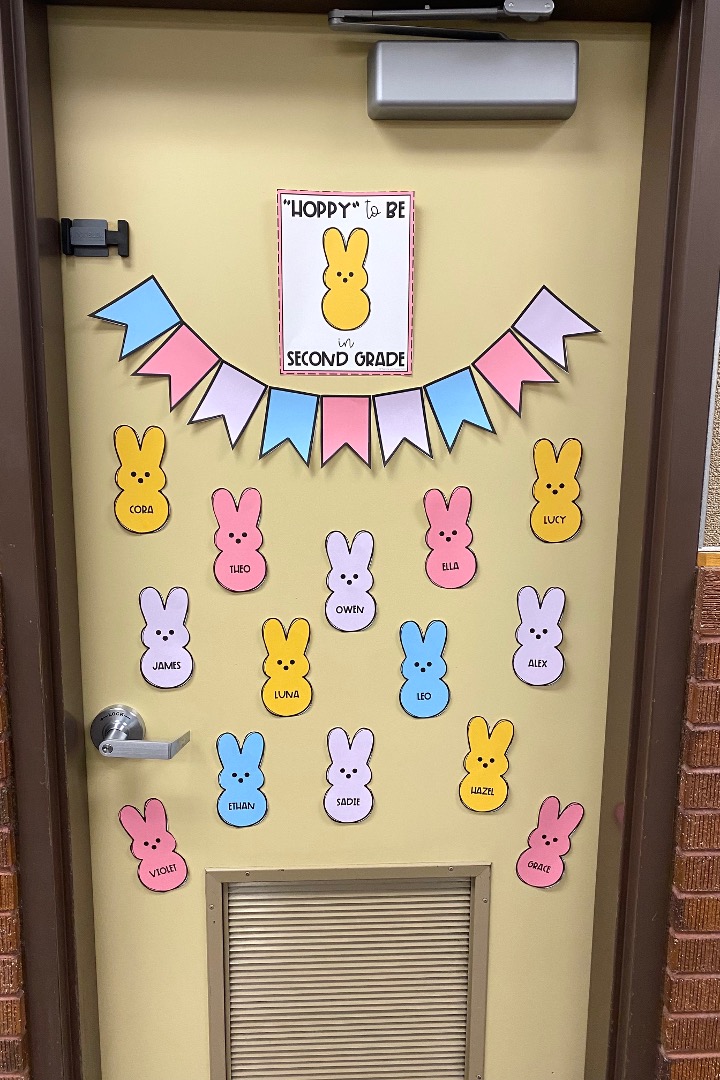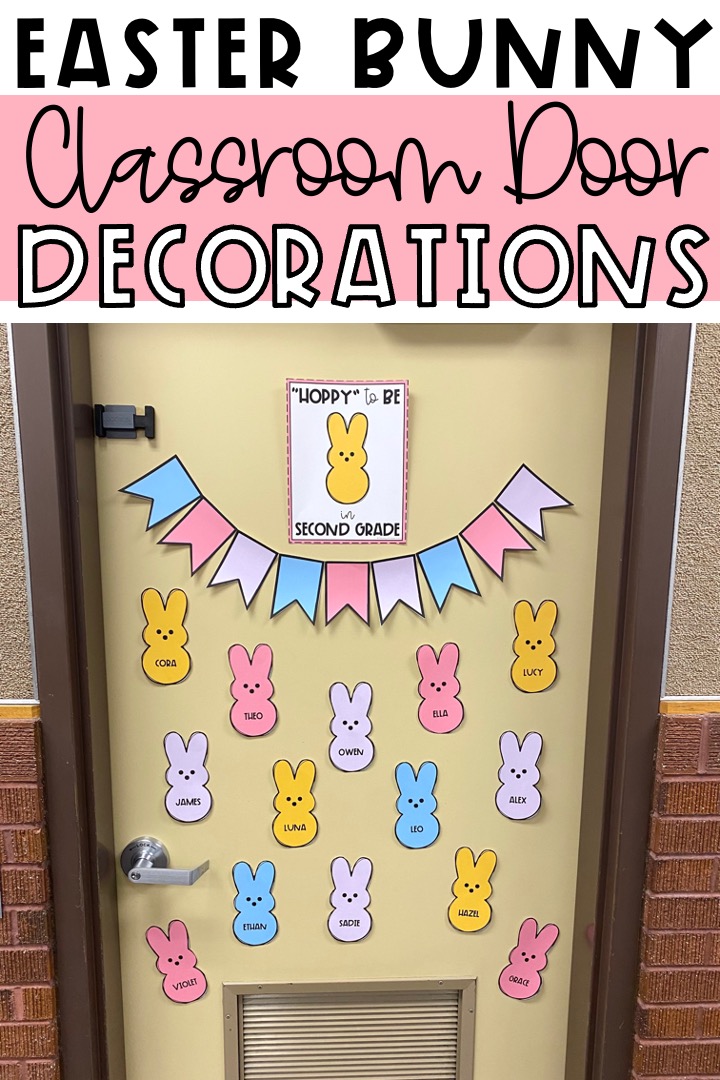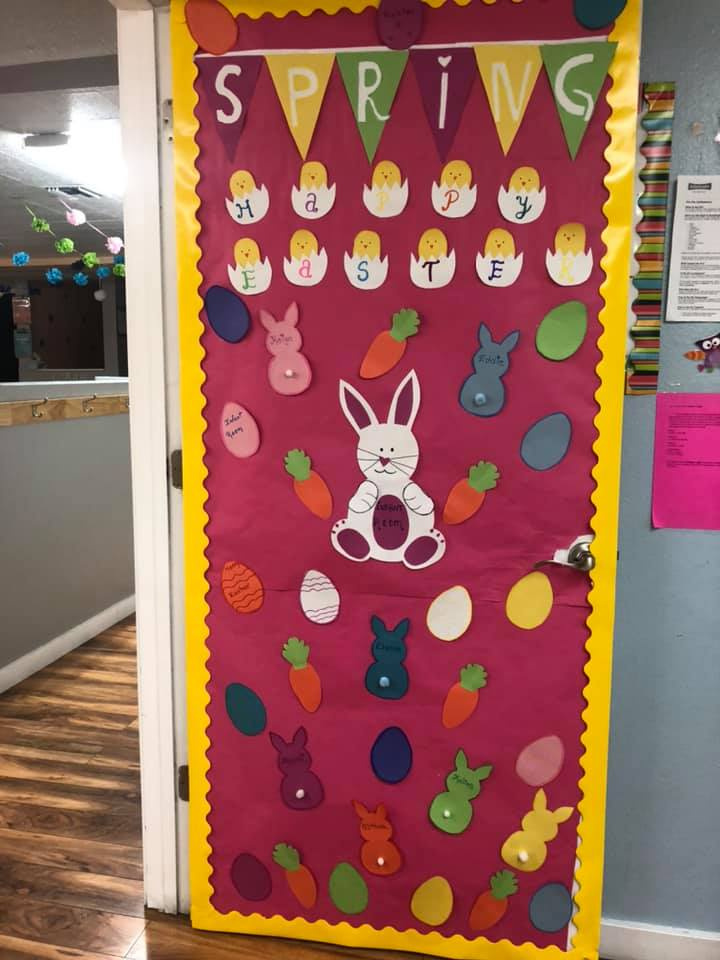Introduction
As the vibrant colors of spring begin to emerge, it’s the perfect time to infuse your classroom with creativity and joy through Easter-themed door decorations. Bringing holiday cheer into your learning space not only fosters a festive atmosphere but also engages students in a fun way. Drawing from my personal experience as an educator, I’ve seen firsthand how a well-decorated classroom door can ignite excitement and creativity among students. In this article, we’ll explore various ideas, tips, and DIY projects for Easter classroom door decorations that will inspire both teachers and students alike.
The Importance of Classroom Door Decorations
Decorating your classroom door for Easter offers numerous benefits. Let’s delve into some of these:
- Enhances School Spirit: Seasonal decorations can foster a sense of community and school spirit.
- Encourages Creativity: Involving students in the decoration process can stimulate their creative thinking.
- Sets a Positive Tone: A welcoming environment can motivate students and improve their focus.
- Promotes Engagement: Eye-catching decorations can spark conversations and interest in the holiday.
Types of Easter Classroom Door Decorations
When it comes to decorating your classroom door for Easter, the possibilities are endless. Here’s a look at some popular styles and themes:
1. DIY Easter Egg Designs
Brightly colored Easter eggs are a classic symbol of the holiday. Students can create their own designs using construction paper, stickers, and paints. Here’s a simple DIY project:
- Provide each student with a large paper egg template.
- Invite them to decorate their egg using various art supplies.
- Once complete, hang the eggs on the door in a collage-style arrangement.

2. Bunny-Themed Decorations
Who doesn’t love bunnies? Crafting bunny decorations can be a fun group activity. Here’s a quick idea: create a “Bunny Stop Here” sign with cute bunny ears poking out of the top of the door.
3. Spring Flowers and Garden Themes
Brighten your door with spring flowers. Use tissue paper or craft paper to create vibrant flowers that can be arranged in a garden layout.

4. Religious Themes
For a religious touch, consider incorporating symbols of Easter that reflect its true meaning, such as crosses and lilies. This can be a great way to educate students about the origins of the holiday.
5. Interactive Door Decorations
Creating an interactive decoration can engage students even more. Consider a “Guess the Number of Eggs” game, where students estimate how many paper eggs are on the door.

How to Create Stunning Easter Door Decorations
Let’s break down the steps to create eye-catching Easter decorations that will impress your students and fellow teachers.
Step 1: Gather Materials
Your first step is to gather all necessary supplies:
- Construction paper
- Scissors
- Glue sticks
- Markers and crayons
- Decorative items (e.g., ribbons, pom-poms, glitter)

Step 2: Plan Your Design
Before you start, sketch a rough design of your door layout. Consider how the various elements will fit together.
Step 3: Assemble Your Decorations
Begin crafting each decoration according to your design. Allow students to express their creativity by letting them help in this stage!

Step 4: Install the Decorations
Once everything is ready, carefully tape or glue the decorations to your door. Ensure that all elements are securely attached so they last throughout the season.
Step 5: Add Finishing Touches
Don’t forget to step back and assess your work. Add any optional elements or details to enhance the overall look.

Comparison of Classroom Door Decoration Ideas
| Decoration Type | Materials Needed | Cost Estimate | Time Required | Engagement Level |
|---|---|---|---|---|
| DIY Easter Eggs | Paper, markers, glue | $10 | 1-2 hours | High |
| Bunny-Themed | Paper, scissors, tape | $5 | 1 hour | Medium |
| Spring Flowers | Tissue paper, glue | $15 | 2 hours | High |
| Religious Symbols | Paper, markers | $5 | 1 hour | Medium |
| Interactive Games | Paper, markers, tape | $7 | 2 hours | Very High |
Pros and Cons of Classroom Door Decorations
Pros
- Creates a festive atmosphere
- Encourages student participation and creativity
- Improves classroom appeal
- Can be a teaching tool

Cons
- Requires planning and effort
- Maintenance may be necessary
- Possible costs involved in materials
Tips for Successful Classroom Door Decorations
Here are some expert tips to ensure your door decorations turn out beautifully:
- Use Quality Materials: Invest in decent crafting materials to ensure durability.
- Incorporate Students’ Ideas: Engage students in the planning process to boost excitement.
- Keep It Simple: Sometimes, less is more. A few well-placed decorations can have a big impact.
Examples of Beautiful Easter Classroom Door Decorations
Here are a few examples that can inspire your creativity:
- Egg Hunt Door Display: Use large cutouts of eggs with hidden messages or clues on them for a fun game.
- 3D Bunny: Create a giant bunny that ‘peeks’ around the door frame.
- Chalkboard Sign: Paint the door with chalkboard paint and use chalk to write festive messages.
Frequently Asked Questions (FAQs)
1. What materials are best for outdoor Easter decorations?
For outdoor decorations, consider using weather-resistant materials like vinyl or laminated paper to ensure durability against the elements.
2. How can I involve my students in the decoration process?
Encourage collaboration by assigning different decoration tasks to small groups. This will not only make the process quicker but also foster teamwork.
3. How long do Easter decorations typically last?
With proper materials and care, Easter classroom decorations can last throughout the entire spring season. Regular checks for wear and tear can help maintain their appearance.
4. Are there any eco-friendly decoration ideas?
Absolutely! Consider recycling old materials, using natural items like flowers, or opting for biodegradable decorations to minimize environmental impact.
5. Can I reuse decorations for future Easter celebrations?
Yes! Many decorations can be disassembled and stored for next year. Consider using more durable materials that can withstand the test of time.